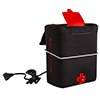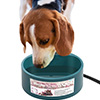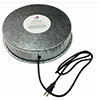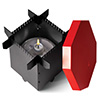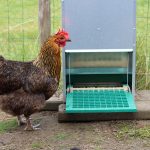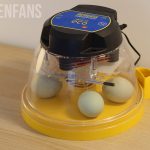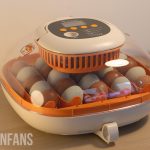10 Easy Ways To Keep Chicken Water From Freezing
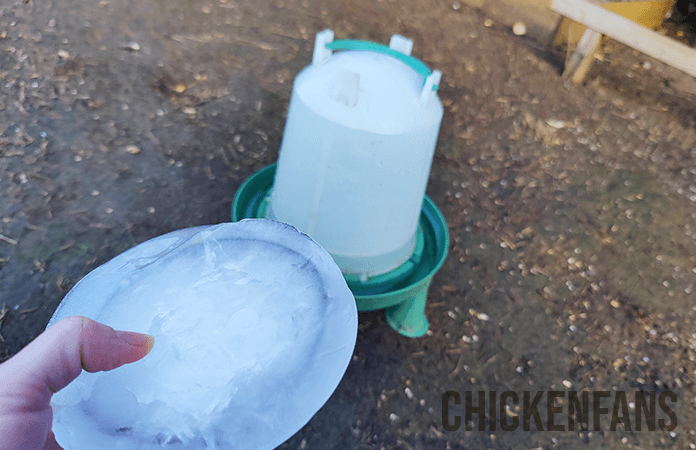
Chicken Fans is reader-supported. When you buy through our links, we may earn a commission. Learn more about our privacy policy and disclaimer.
During cold and freezing winter, you’ll have to regularly replace your chickens’ water so it can’t freeze. This can be unpleasant and not always possible when working all day. We’ll address 10 EASY ways to keep your chickens water from freezing in the winter and things you should not do.
10 best ways to keep your chickens’ waterer from freezing:
- Place the waterer in the warmest possible place
- Avoid galvanized waterers
- Don’t use plastic waterer containers that twist on
- Use bigger-sized troughs and break the ice
- Put floating items in the water trough
- Keep extra waterers inside and replace frozen ones
- Use fresh manure as a natural heater
- Use heated chicken waterer
- Use a heater base
- Check on your chickens regularly
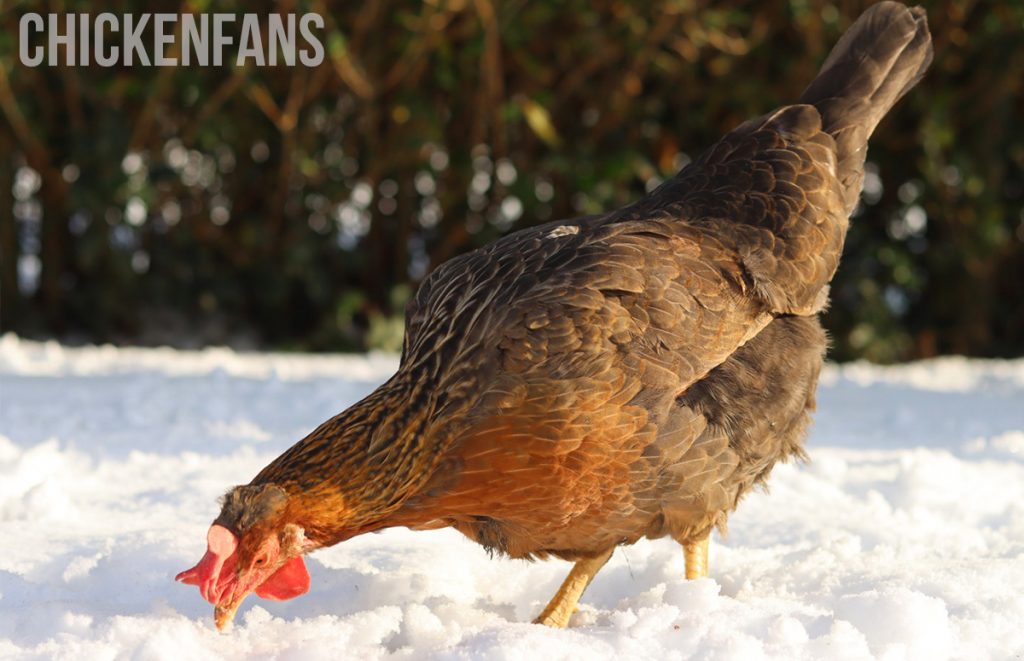
Before we start, we want to point out that adding salt to your chickens’ waterer to keep it from freezing is dangerous and causes health threats to your flock.
Other easy and cheap options aren’t dangerous at all.
Let’s take a look!
1. Place the waterer in the warmest possible place
During winter, you want to make the most of every sunlight you can catch. That also includes your chickens’ waterer! Look out for that one spot in the chicken run with the most sunlight hours per day and place the waterer. Make sure to keep it out of windy areas and out of the shade.
Should you be in a DIY mood, you can create a miniature greenhouse to place the waterer. Just put a couple of windows into an A-shape and secure them.
Keep the waterer behind the glass windows, place it directly in the sun, and the water won’t freeze as quickly on sunny days.
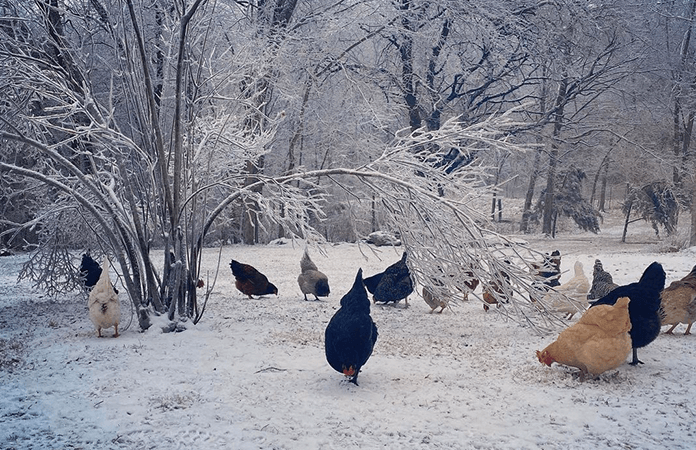
2. Avoid galvanized waterers
There is nothing wrong with galvanized waterers; they are mostly high-quality waterers! But during freezing temperatures, it’s best to store the galvanized waterers and replace them with rubber bowls.
The metal stays freezing cold, even on a sunny day, and the water never heats up.
Use a rubber bowl instead; this can be any rubber bowl, even a dog bowl. Because of the flexible material, you can easily toss out the ice and refill it with water. Black-colored bowls absorb sunlight when placed in the sun, which also helps keep the water above freezing temperatures.
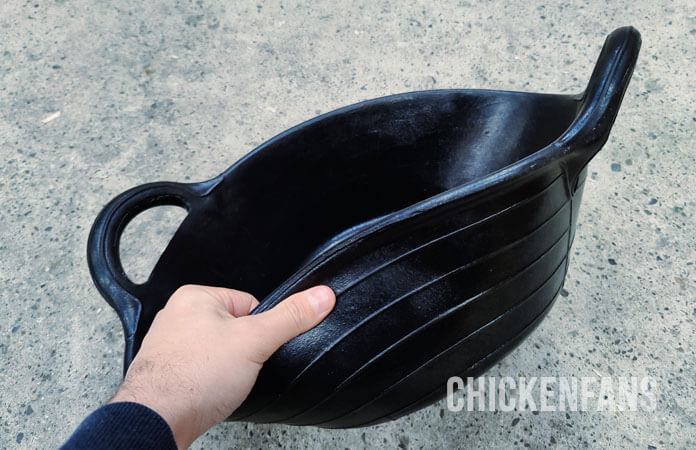
3. Use bigger-sized troughs and break the ice
Instead of using a rubber dog bowl, consider placing a bigger-sized trough inside the run and breaking the ice a couple of times daily.
Chickens and birds don’t mind drinking cold water; they prefer cold water to lukewarm water. Take out the biggest ice pieces and ensure the chickens can easily reach the water.
This is an easy way not to have to replace the water or waterer multiple times a day. But make sure to replace the water at least every two days or when it looks dirty.
4. Don’t use plastic waterers that twist on
To make yourself comfortable, use a rubber bowl as a water holder for your chickens during winter, or make sure you have spare plastic waterers to switch to when one freezes up.
Caring for your chickens can be a real chore during the winter when the run is cold, wet, and muddy. Making these tasks as easy as possible is key.
Plastic waterers are commonly used and are great to use in summer or when it’s not freezing. But you’ll have difficulty loosening the waterer when the water is frozen, and you must thaw it first.
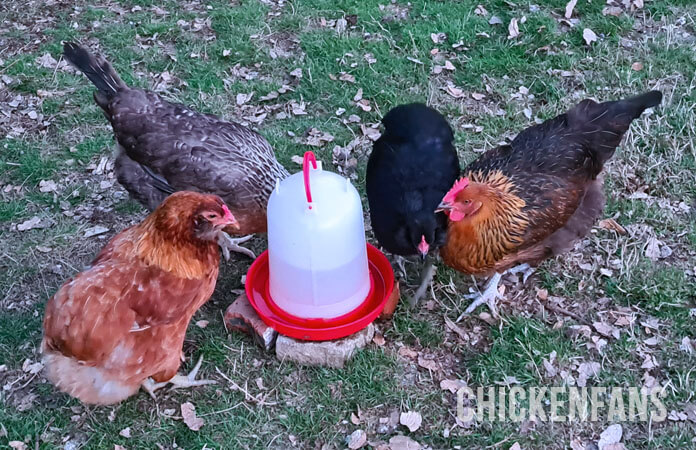
5. Put floating items in the water trough
You can place floating items in the water to prevent a water trough from rapidly freezing. Due to the constant moving of the floating object, it’ll take longer for the water surface to freeze.
However, it’s only a temporary solution that won’t work on highly frigid days.
A common trick is putting soda bottles filled with salted water inside the water trough. The salty water inside the bottle will not freeze as quickly as the water in the trough, and its constant movement breaks the thin ice peel.
You can use any item in the house; anything that flotes and is heavy enough can help.
6. Keep extra waterers inside and replace frozen ones
It’s the easiest trick we have for you. Just replace the frozen waterer with a fresh one. You can buy one spare waterer if you’re not planning on spending money on heaters or buying different types of waterers. Take the frozen one inside, and put a fresh waterer in the run.
After a while, the frozen waterer will thaw, and you can clean and prepare it to replace the one in the run. It’s an easy and cheap solution without worrying about breaking the ice or trying to thaw frozen waterers under hot water.
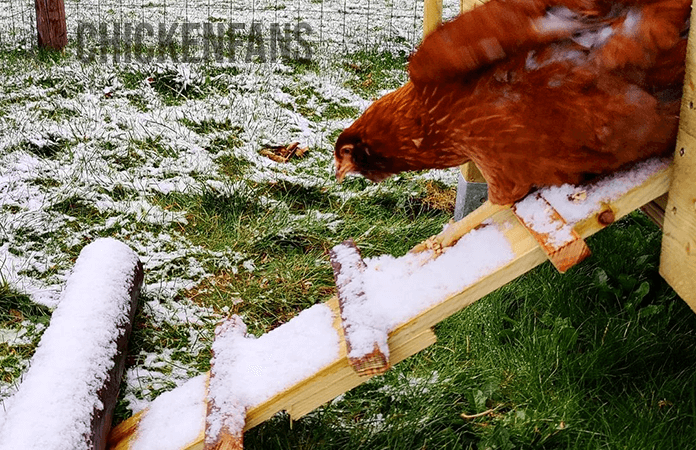
7. Use fresh manure as a natural heater
Any homesteader or farmer is well aware that fresh manure generates heat. Fresh manure is often used as an additional heating source for greenhouses.
This trick can heat your chickens waterer when you have no electricity around the coop for installing an electric water heater.
But we have to be honest, this small amount of manure can not compete with an electrical heating system, although it can help just enough to get your waterer through the day.
To create your own natural manure heater:
- Dig a hole in the ground of approximately 1 foot in width and depth.
- Fill the bottom with straw, hay, or other organic material to create an ‘insulation wall’.
- Place the fresh manure inside the hole, and cover again with organic material, but not too much; the heat still has to come through.
- Place the waterer over the hole, and let the hot manure do its work to keep your waterer from freezing.
It’s an excellent way to use your manure’s heat, and you can still reuse it when spring comes.
8. Use a heated chicken waterer
The most straightforward recommendation is a heated chicken drinking system if you can access electricity around the chicken coop. It works like a regular waterer, except you plug it in, and the water stays cool but never freezes.
The downside is the product can be rather expensive. If you’re looking for a cheaper option than a chicken waterer system, look for a heated dog bowl. They’re often easier to fill and replace and cheaper.
9. Use a heater base or Deicer
Instead of buying a complete set of chicken waterers, you can place your usual waterer on a heater base or use a deicer. The heater base operates similarly to a hot plate but at a lower temperature.
The primary concern with heater bases, deicers, and heated waterers is that you need electricity to use them.
However, a few brands offer heating solutions that do not require electricity, which is a significant advantage.
One such brand is Run Chicken, renowned for their high-quality chicken coop doors. In 2024, Run Chicken introduced an innovative outdoor water heater that functions independently of electricity.
This unique heater employs a wax-based cartridge system to provide steady heat to any water container placed on it.
10. Check on your chickens regularly
Checking on your chickens regularly is one tip we can give you that does not require hard work or money. The only problem is those regular check-ups and going to work all day aren’t a good combination.
Most chickens can stand cold weather quite well; they like cold temperatures better than hot ones. But they do need access to fresh water and food.
Remember that you’ll need to replace their water at least twice a day when it’s starting to get cold. It’s best to do so in the morning before you leave for work, when you come home and right before your chickens go to sleep. Or use one of the tricks we addressed to keep the water from freezing rapidly.
To sum up
We all need to take extra care of our pets during extreme weather. Chickens can stand cold temperatures but need access to food, water, and shelter.
Therefore, you must frequently check on their waterer to ensure the water isn’t frozen. Multiple tricks can be used to ensure cool but unfrozen water for your chickens, and you don’t always have to spend much money or time.
Choose the method that suits you best, or try out a few things and let your chickens decide!
